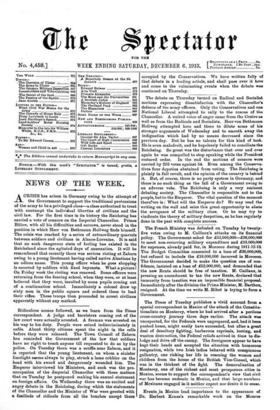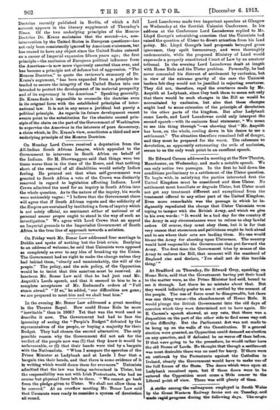Events ,in Mexico lend importance to the appearance of Dr.
Herbert Kraus's remarkable work on the Monroe
Doctrine recently published in Berlin, of which a full account appears in the literary supplement of Thursday's Times. Of the two underlying principles of the Monroe Doctriue Dr. Kraus maintains that the second—i.e., non- intervention by the United States in European questions—Las not only been consistently ignored by American statesmen, but Las ceased to have any object since the United States entered on a career of Imperial expansion fifteen years ago; the first principle—the exclusion of European political influence from the Americas—is now more vigorously asserted than ever, and has become a principle not of defence but of aggression. "The Monroe Doctrine," to quote the reviewer's summary of Dr. Kraus's argument, "has been expanded from a principle in- tended to secure the integrity of the United States into one intended to protect the development of its material prosperity and of its supremacy in the Americas." Speaking generally, Dr. Kraus finds it impossible to reconcile the doctrine even in its original form with the established principles of inter- national law. It is not in any sense a juridical but purely a political principle. As regards its future development recent events point to the substitution for the obsolete second prin- ciple of the claim on the part of the Government of Washington to supervise the Amerieas in the interests of pure democracy, a claim which, in Dr. ICraus's view, constitutes a third and new underlying principle of the Monroe Doctrine.



































































 Previous page
Previous page